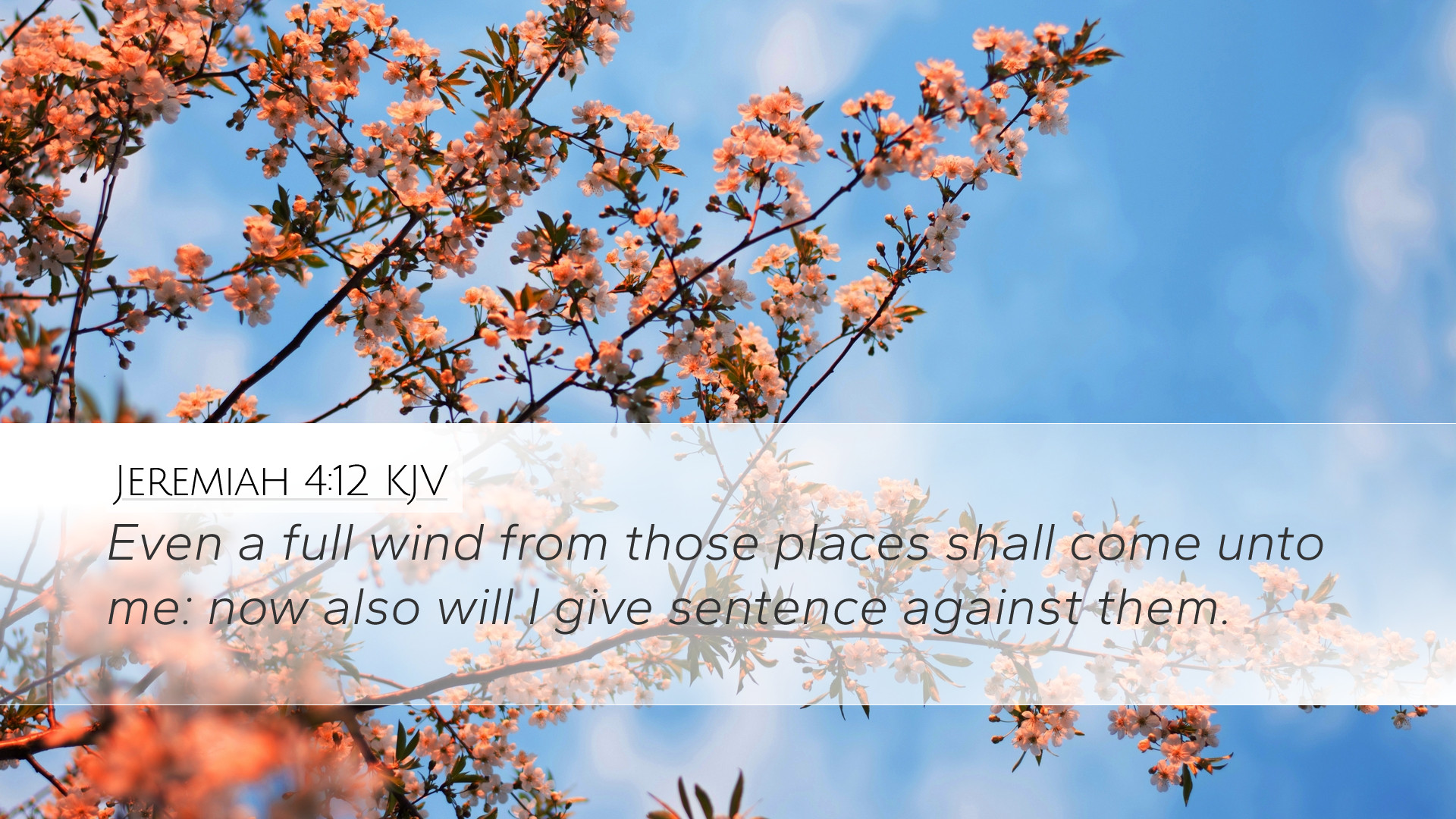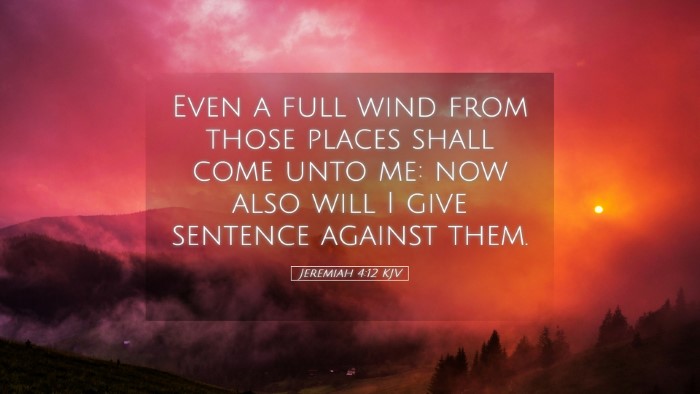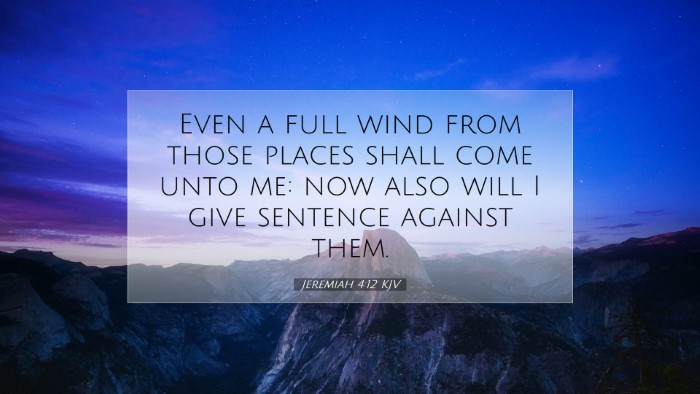Commentary on Jeremiah 4:12
Bible Verse: Jeremiah 4:12 - "A full wind from those places shall come unto me: now also will I give sentence against them." (KJV)
Introduction
This verse within the Book of Jeremiah is a powerful reflection on God's impending judgment against Israel due to their unfaithfulness. The context here shows Jeremiah relaying a divine message concerning the dire consequences that the nation must face due to their sins. The wind metaphor symbolizes both judgment and the swift onset of calamity that is to come upon the people.
Contextual Overview
Jeremiah, often called the "weeping prophet," spent much of his life warning Israel of impending destruction due to their repeated acts of disobedience. Within the larger backdrop of chapters 4-6, this segment highlights the urgency of repentance and the stark realities of divine retribution.
Analysis of Key Terms
- "Full wind": This phrase suggests a powerful, uncontrollable force; winds in the Bible often symbolize the Spirit of God or divine judgment. It indicates not just a light breeze, but a fierce gale that can uproot and destroy.
- "Those places": This may refer to distant nations that God will use as instruments of judgment against Israel. This emphasizes God's sovereignty in using foreign powers to execute His plans.
- "Sentence": The concept of giving a sentence indicates a formal decree of judgment, akin to a court ruling. God declares His intention to impose justice upon His people, thus emphasizing the seriousness of their transgressions.
Theological Insights
The theological implications of this verse are profound. It reiterates the principle that God is both merciful and just. Even as He desires a relationship with His people, His holiness necessitates a response to sin. From the commentaries of Matthew Henry and Adam Clarke, we find deeper exploration into God's nature as both a protector and a judge.
Matthew Henry's Commentary
Matthew Henry emphasizes the certainty of God's judgment as inevitable. He notes that just as a wind, once initiated, is unstoppable, so too is the divine decree against sin. He draws parallels to natural disasters as tools of God's judgment, illustrating how the unrepentant must brace themselves for the destructive winds of God's wrath.
Albert Barnes' Notes
Albert Barnes comments on the use of "a full wind" as not merely a natural disaster but as a direct act of God. He points out that the impending nations symbolize God's hand directing the fulfillment of His judgment. He reminds readers that God is not merely reactive but is actively orchestrating events for His divine purposes. Barnes also highlights the urgency of repentance, drawing from the immediate context of approaching disaster.
Adam Clarke's Commentary
Adam Clarke provides insight into the historical context, reflecting on the Babylonian threat during Jeremiah's time. His interpretation suggests that Jeremiah's prophetic message serves as a warning to the people to return to covenant faithfulness. Clarke emphasizes the need for individuals and nations to heed God's warnings, as persistent disobedience can lead to inevitable consequences.
Applications for Today
This scripture serves as a poignant reminder for modern believers of the seriousness of sin and the need for a responsive heart towards God's call for repentance. It challenges spiritual leaders and congregations alike to examine their hearts and the state of their corporate faithfulness. The wind here is not just a metaphor for destruction but also reminds us of the coming of the Holy Spirit, who brings both conviction and comfort.
Practical Reflections
- Self-Examination: Believers are called to assess their spiritual state and seek areas of repentance.
- Community Responsibility: The text speaks to the communal nature of sin, urging churches to foster environments of accountability and restoration.
- Awareness of Judgment: While Christians rest in the grace of God, they must also recognize that God’s justice is an essential aspect of His character.
- Hope in God’s Mercy: Even amidst dire warnings, the possibility of repentance and restoration through God’s mercy remains a constant theme throughout Scripture.
Conclusion
Jeremiah 4:12 serves as both a warning and an invitation. It is a testament to God's unwavering commitment to holiness and justice, while also calling His people to return to Him in humility. As we reflect on these truths, may this verse compel us to engage in serious reflection and motivate fervent prayers for revival and restoration among God’s people today.


